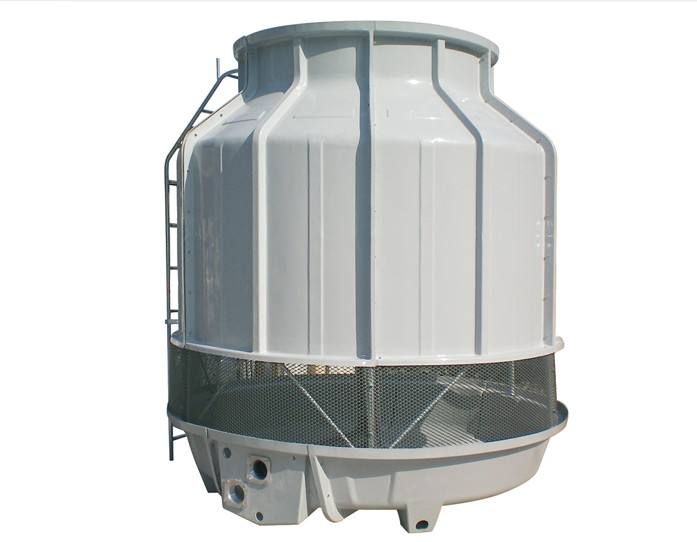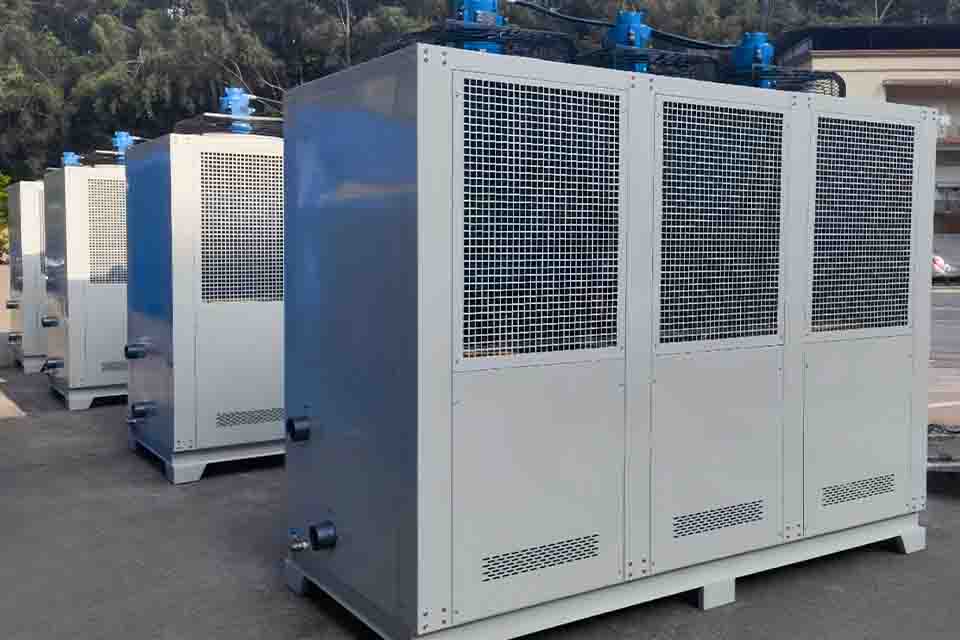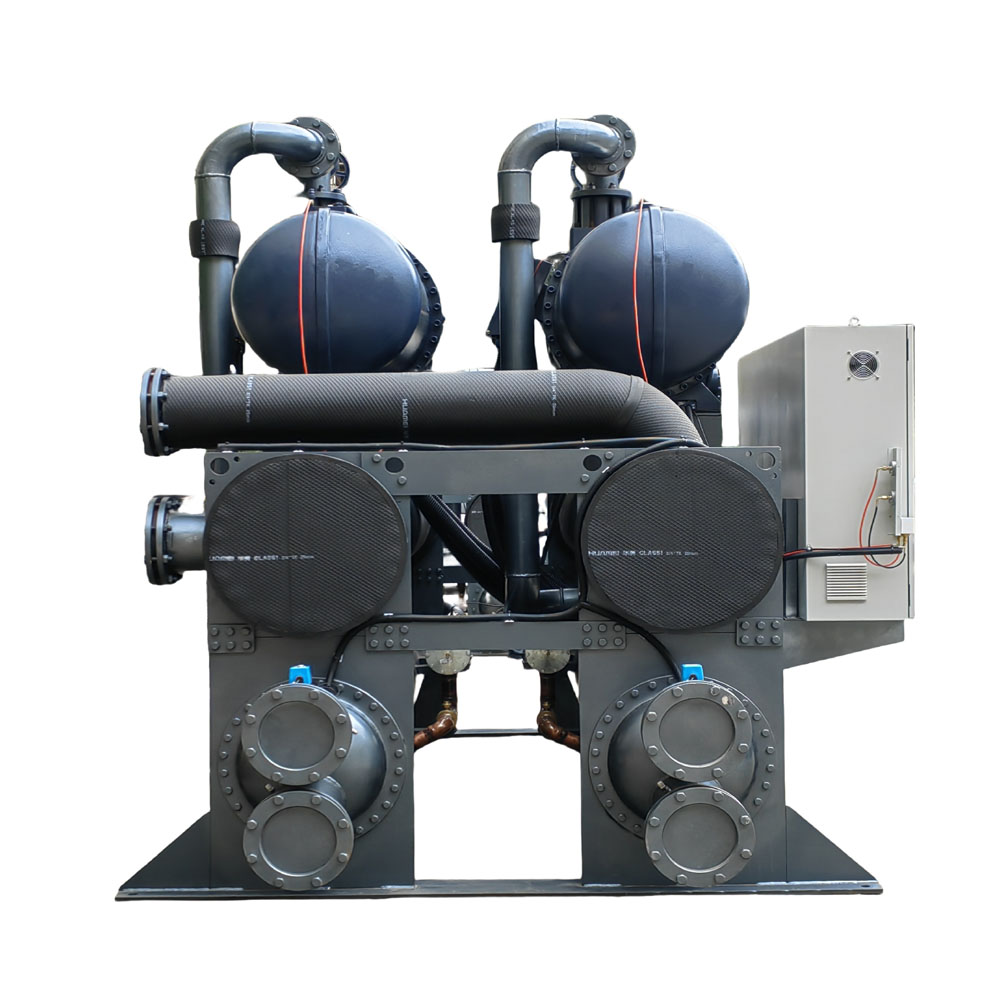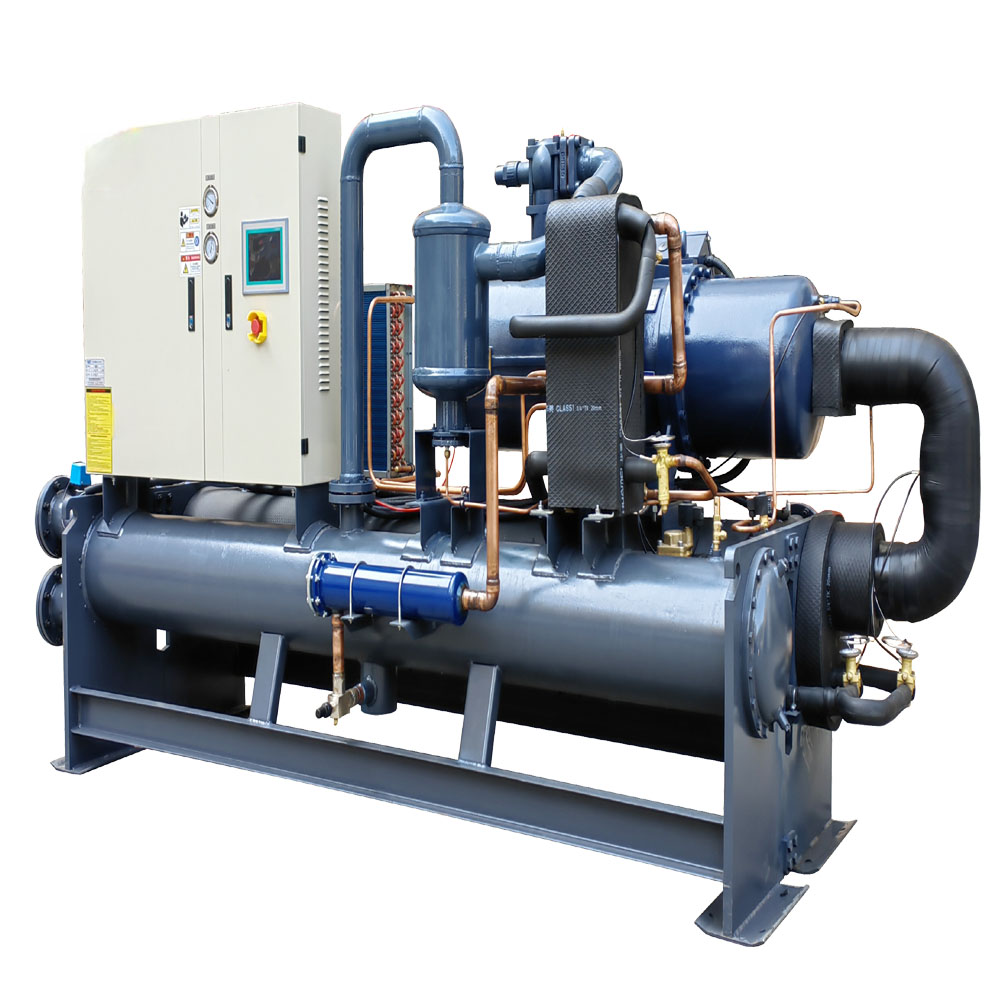-
Dalingshan Industrial Guangdong

what does cop stand for
COP26: What Does it Mean and Why Should You Care?
This article delves into the meaning of COP, its significance in global climate action, and why understanding its role is crucial for everyone, especially industries reliant on precise temperature control, like those we serve at our industrial water chiller manufacturing plants. We aim to explain the complexities of COP in a way that’s easy to understand, highlighting its importance and urging you to learn more about how it affects our planet and your business. This information is not just worth reading; it’s essential for anyone committed to a sustainable future.
Table of Contents
What Does COP Stand For?
COP stands for Conference of the Parties. This term refers to the supreme decision-making body of the United Nations Framework Convention on Climate Change (UNFCCC). It is an annual meeting where representatives from nearly every country on Earth gather to discuss and negotiate actions to address climate change. The first COP was held in Berlin in 1995, just a few years after the UNFCCC came into force. These countries’ are the parties to the convention. The term COP is often used interchangeably with terms like UN Climate Change Conference or climate summit. The primary objective of these gatherings is to assess progress in dealing with climate change and to establish legally binding obligations for developed countries to reduce their greenhouse gas emissions. I, as a representative of a leading industrial water chiller manufacturing company, recognize the crucial role these meetings play in shaping environmental policies that directly impact our industry and the broader manufacturing sector.
The UNFCCC is a treaty signed at the Earth Summit in Rio de Janeiro in 1992. This landmark agreement was a pivotal moment in global environmental governance. The convention aims to stabilize greenhouse gas concentrations in the atmosphere at a level that would prevent dangerous anthropogenic interference with the climate system. Each year, the COP serves as a platform for countries to review the implementation of the Convention and to negotiate new commitments. Unless the parties decide otherwise, the COP is held annually. The presidency of the COP rotates among the five recognized UN regions, ensuring a balanced global representation in the decision-making process. COP stands for conference that is a vital decision-making body.
How is COP Used in Different Contexts?
The term “COP” can be used in multiple contexts, often leading to confusion. While it primarily refers to the Conference of the Parties in the context of climate change, it is also commonly used as an abbreviation for “police officer” in everyday language. In the world of law enforcement, a COP is someone tasked with maintaining public order, preventing and detecting crime, and enforcing laws. This usage is entirely separate from its environmental counterpart but equally important in its respective field. When someone asks “What is the meaning of COP“, we must look to context for the answer.
Additionally, “COP” can be used as a verb, meaning to catch or seize. For instance, someone might say they “copped” a great deal at a sale or that a police officer “copped” a suspect, implying they made an arrest. COP definition does change depending on the context. This versatility in usage highlights the importance of understanding the context in which the term is used. You might see COP in an English dictionary. Whether we’re discussing international climate agreements or everyday interactions, clarity in communication is crucial. Our industrial water chiller manufacturing plants ensure precise definitions and specifications in our products, just as we strive for clarity in understanding the various meanings of COP.
What is the History of COP in Climate Negotiations?
The history of COP dates back to the early 1990s, with the establishment of the United Nations Framework Convention on Climate Change (UNFCCC). The first COP, held in Berlin in 1995, marked the beginning of annual meetings aimed at addressing the growing threat of climate change. These initial meetings focused on establishing frameworks and protocols for international cooperation on climate action. I remember attending some of these early conferences and witnessing the initial steps towards global collaboration on this critical issue.
Over the years, COP has been instrumental in achieving significant milestones, such as the adoption of the Kyoto Protocol in 1997 and the landmark Paris Agreement in 2015. The Paris Agreement, reached at COP21, was a historic achievement, with 196 parties agreeing to limit global temperature increase to well below 2 degrees Celsius above pre-industrial levels, pursuing efforts to limit the temperature increase to 1.5 degrees Celsius. This agreement marked a turning point in international climate negotiation, setting ambitious targets for reducing greenhouse gas emissions and promoting adaptation and mitigation measures. It has been amazing seeing the progress made at these conferences. These two COPs were very memorable.
Why is the COP Summit Important?
The COP summit is of paramount importance because it serves as the primary global forum for addressing climate change. It brings together world leaders, policymakers, scientists, businesses, and civil society organizations to negotiate and agree on actions to combat climate change. The decisions made at COP have far-reaching implications for the planet’s future, influencing national policies, international agreements, and global efforts to transition to a low-carbon economy. The global climate depends on the actions agreed upon at COP.
Moreover, COP plays a crucial role in raising public awareness and mobilizing support for climate action. The high-profile nature of the summit ensures that climate change remains a top priority on the global agenda. It provides a platform for sharing knowledge, showcasing innovative solutions, and fostering collaboration among different stakeholders. As a company committed to sustainability, we closely follow the outcomes of COP and align our practices with the goals and targets set forth in these international agreements. I always make sure our company stays informed and actively participates in these discussions. The COP summit is crucial for us. The decisions made at this climate change conference are pivotal.
Who Attends the COP Summits?
COP summits are attended by a diverse range of participants, including Heads of State and government officials, representatives from UN agencies, intergovernmental organizations (IGOs), non-governmental organizations (NGOs), business leaders, scientists, and activists. The Blue Zone at COP is where formal negotiations take place and is restricted to accredited individuals, including delegates from each country. National governments play a big role at the summits.
| Participant Category | Role at COP |
| Heads of State | Provide political leadership and make high-level commitments. |
| Government Officials | Negotiate the details of agreements and represent their country’s interests. |
| UN Agencies | Offer technical expertise and support the implementation of the Convention. |
| IGOs | Facilitate intergovernmental cooperation and coordination on climate action. |
| NGOs | Advocate for ambitious climate policies, provide research and analysis, and represent the interests of civil society. |
| Business Leaders | Showcase sustainable business practices, invest in climate solutions, and engage in policy discussions. |
| Scientists | Provide scientific evidence and advice to inform policy decisions. |
| Activists | Raise awareness, mobilize public support for climate action, and hold governments and businesses accountable. |
| Media | Report on the proceedings of COP, disseminate information to the public, and shape public opinion on climate change. |
| Observer Organizations | Participate in sessions, make interventions, and contribute to the discussions without having voting rights. |
| General Public | Can attend side events, exhibitions, and activities in the Green Zone to learn about climate change and engage in climate action. |
The diversity of participants at COP underscores the multifaceted nature of climate change and the need for a collaborative approach to address it. Each group brings unique perspectives, expertise, and resources to the table, contributing to the richness and effectiveness of the discussions. The United Nations Climate Change Conference sees many different people attend.
What Were the Key Outcomes of COP26?
COP26, held in Glasgow in 2021, was a significant milestone in the global fight against climate change. This 26th annual meeting was originally scheduled for 2020 but was delayed by a year due to COVID. Despite the delay, the conference built on the momentum of the Paris Agreement, with countries presenting their updated Nationally Determined Contributions (NDCs) outlining their plans to reduce emissions by 2030. One of the key outcomes of COP26 was the adoption of the Glasgow Climate Pact, which reaffirmed the commitment to the Paris Agreement’s temperature goals and called for increased ambition in climate action. The summit saw significant pledges and commitments from countries, businesses, and financial institutions.

Another notable achievement of COP26 was the completion of the Paris Rulebook, a set of guidelines for implementing the Paris Agreement. This included agreements on carbon markets, transparency, and reporting requirements, providing a framework for countries to track and report their progress towards their climate targets. Additionally, COP26 saw significant progress on issues such as deforestation, methane emissions, and climate finance, with countries and organizations making ambitious commitments to address these critical areas. COP26 was a very important meeting for the world. I was particularly impressed by the commitments made to enhance climate financing for developing nations.
What is COP28 and Why Does it Matter?
COP28, held in Dubai, United Arab Emirates, in 2023, marked another important step in the global effort to combat climate change. As the 28th meeting of the Conference of the Parties, COP28 built on the achievements of previous COPs, focusing on accelerating the implementation of the Paris Agreement and raising ambition in climate action. COP28 was a success. One of the key themes of COP28 was the need to transition to a low-carbon economy, with discussions centered on renewable energy, energy efficiency, and sustainable transportation.
COP28 is particularly significant because it includes the first Global Stocktake, a process for countries and stakeholders to see where they’re collectively making progress towards meeting the goals of the Paris Agreement – and where they’re not. This assessment will inform the next round of NDCs, which are due in 2025, providing an opportunity for countries to align their climate plans with the latest science and the urgency of the climate crisis. As a company committed to innovation and sustainability, we see COP28 as a critical opportunity to showcase our advanced industrial water chiller technologies that contribute to energy efficiency and emissions reduction.
How Does COP Relate to Industries and Businesses?
The outcomes of COP have significant implications for industries and businesses worldwide. The agreements and commitments made at COP shape national policies, regulations, and market trends, influencing how companies operate and invest. For industries, particularly those with high energy consumption or significant carbon footprints, COP provides both challenges and opportunities. 197 different parties are involved. The EU is one of these parties.
On one hand, businesses may face increased pressure to reduce their emissions, improve energy efficiency, and adopt sustainable practices. This can involve investing in new technologies, redesigning processes, and adapting to changing consumer preferences. On the other hand, COP also creates opportunities for innovation, growth, and leadership in the transition to a low-carbon economy. Companies that proactively address climate change can gain a competitive advantage, attract investment, and enhance their reputation. Our experience shows that embracing sustainability not only benefits the environment but also drives business success.
What is the Role of Observers at COP?
Observers play a vital role at COP, providing valuable input, expertise, and perspectives to the negotiations. Observer organizations, which include NGOs, IGOs, UN agencies, and representatives from the private sector, are granted access to COP sessions and can make interventions, submit written contributions, and engage in discussions with Parties. While observers do not have voting rights, they play a crucial role in shaping the outcomes of COP by providing research, analysis, and advocacy. This was the case in Brazil and will continue to be the case. 195 countries across the globe are involved.
Observers also play an important role in promoting transparency and accountability at COP. By monitoring the negotiations, tracking progress, and holding governments and businesses accountable for their commitments, observers help ensure that COP delivers meaningful outcomes. They also facilitate dialogue and collaboration among different stakeholders, fostering a more inclusive and participatory approach to climate action. I have personally witnessed the positive impact of observer organizations in bringing diverse voices and expertise to the table. The secretariat plays an important role.
How Can You Get Involved in Climate Action Beyond COP?
While COP provides a critical platform for global climate action, addressing climate change requires ongoing efforts at all levels, from individuals to businesses to governments. There are many ways you can get involved in climate action beyond COP, both in your personal life and in your professional capacity.
One of the most important things you can do is to educate yourself and others about climate change. Learn about the science, the impacts, and the solutions, and share this knowledge with your friends, family, and colleagues. You can also make changes in your own life to reduce your carbon footprint, such as conserving energy, using public transportation, choosing sustainable products, and reducing waste. The halt of climate change starts with us.
Here are some great internal links to explore more about our products and how they contribute to various industries:
- Learn about our Water Cooled Screw Central Chillers
- Discover our solutions for the HVAC Chillers
- Explore our Industrial Chillers For Agriculture
- See our advanced Water Cooled Screw Water Chiller
- Check out our Glycol chillers
- Investigate our Shell and Tube Heat Exchanger
FAQs:
What is the main goal of the COP summits?
The main goal of the COP summits is to assess progress in dealing with climate change and to establish legally binding obligations for developed countries to reduce their greenhouse gas emissions. They also aim to negotiate and agree on actions to combat climate change at a global level.
How often are COP meetings held?
COP meetings are held annually unless the Parties decide otherwise. The presidency of the COP rotates among the five recognized UN regions.
What is the Paris Agreement, and why is it important?
The Paris Agreement is a landmark international treaty adopted at COP21 in 2015. It aims to limit global temperature increase to well below 2 degrees Celsius above pre-industrial levels and to pursue efforts to limit the temperature increase to 1.5 degrees Celsius. It is important because it represents a global consensus on the need to address climate change and sets ambitious targets for reducing greenhouse gas emissions.
What role do businesses play at COP?
Businesses play a crucial role at COP by showcasing sustainable practices, investing in climate solutions, and engaging in policy discussions. They also contribute to the transition to a low-carbon economy and can gain a competitive advantage by proactively addressing climate change.
How can I reduce my carbon footprint?
You can reduce your carbon footprint by conserving energy, using public transportation or biking instead of driving, choosing sustainable and energy-efficient products, reducing waste, and supporting businesses and policies that prioritize sustainability.
What does COP mean in law enforcement?
In law enforcement, COP is an abbreviation for “police officer,” someone tasked with maintaining public order, preventing and detecting crime, and enforcing laws. This is a common usage of the term, distinct from its environmental context.
Key Takeaways:
- COP stands for Conference of the Parties, the supreme decision-making body of the UNFCCC.
- COP meetings are held annually to address climate change and negotiate global climate action.
- The Paris Agreement, adopted at COP21, is a landmark treaty aiming to limit global temperature increase.
- COP26 in Glasgow and COP28 in Dubai were significant milestones in the global fight against climate change.
- Businesses play a crucial role in climate action and can benefit from transitioning to a low-carbon economy.
- Observers, including NGOs and businesses, contribute valuable expertise and perspectives to COP negotiations.
- Everyone can get involved in climate action by educating themselves, reducing their carbon footprint, and supporting sustainable practices.
- COP has multiple meanings, including “police officer” and the verb “to seize” or “arrest.”
By understanding the significance of COP and its implications for our planet and our industries, we can all contribute to a more sustainable and resilient future. Let’s work together to achieve the ambitious goals set forth by the global community and ensure a livable planet for generations to come. Please contact our industrial water chiller manufacturing company to find out more.








